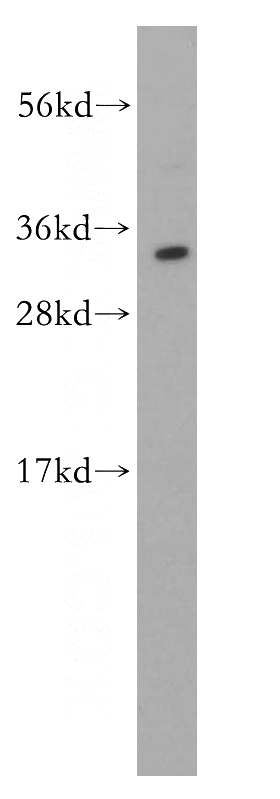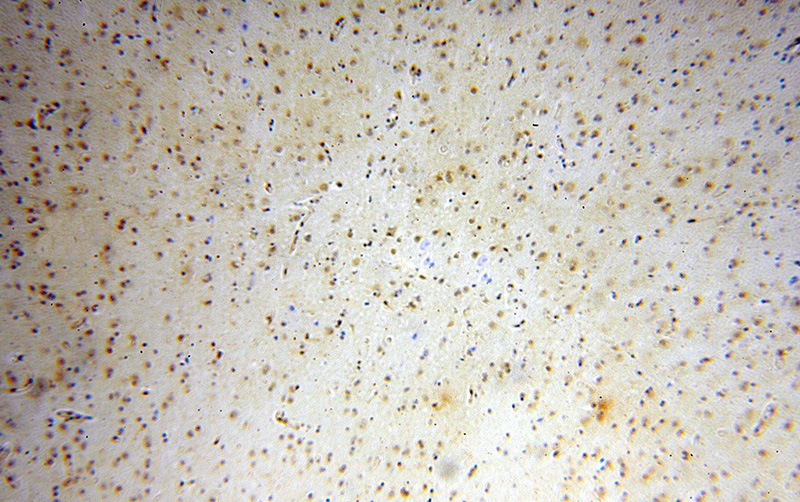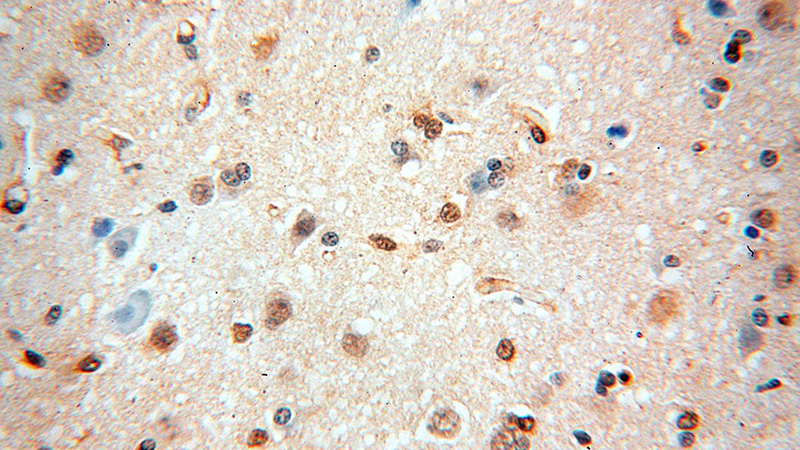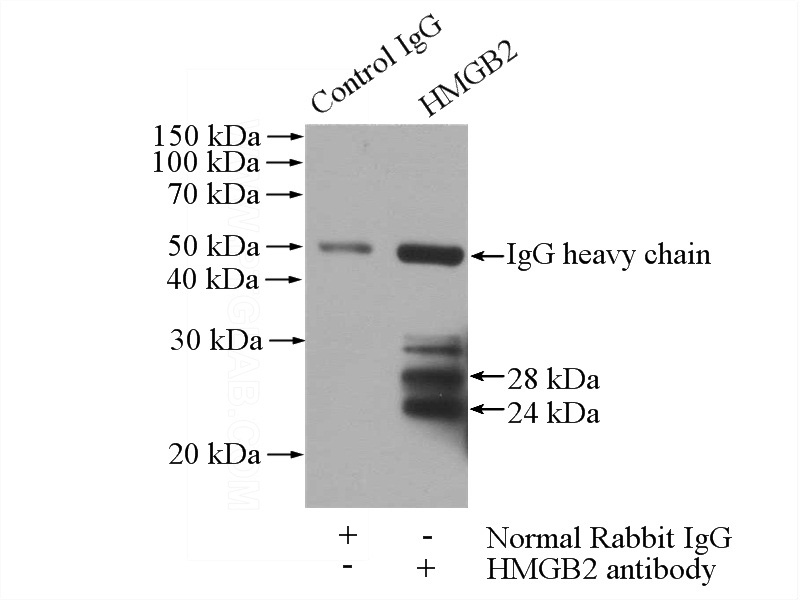-
Product Name
HMGB2 antibody
- Documents
-
Description
HMGB2 Rabbit Polyclonal antibody. Positive IP detected in HEK-293 cells. Positive WB detected in Jurkat cells, HEK-293 cells, HL-60 cells, human cerebellum tissue, K-562 cells. Positive IHC detected in human brain tissue. Observed molecular weight by Western-blot: 33-35 kDa
-
Tested applications
ELISA, WB, IHC, IP
-
Species reactivity
Human,Mouse,Rat; other species not tested.
-
Alternative names
high mobility group box 2 antibody; High mobility group protein 2 antibody; High mobility group protein B2 antibody; HMG 2 antibody; HMG2 antibody; HMGB2 antibody
-
Isotype
Rabbit IgG
-
Preparation
This antibody was obtained by immunization of HMGB2 recombinant protein (Accession Number: NM_001130688). Purification method: Antigen affinity purified.
-
Clonality
Polyclonal
-
Formulation
PBS with 0.02% sodium azide and 50% glycerol pH 7.3.
-
Storage instructions
Store at -20℃. DO NOT ALIQUOT
-
Applications
Recommended Dilution:
WB: 1:500-1:5000
IP: 1:200-1:2000
IHC: 1:20-1:200
-
Validations

Jurkat cells were subjected to SDS PAGE followed by western blot with Catalog No:111479(HMGB2 antibody) at dilution of 1:600

Immunohistochemical of paraffin-embedded human brain using Catalog No:111479(HMGB2 antibody) at dilution of 1:100 (under 10x lens)

Immunohistochemical of paraffin-embedded human brain using Catalog No:111479(HMGB2 antibody) at dilution of 1:100 (under 40x lens)

IP Result of anti-HMGB2 (IP:Catalog No:111479, 4ug; Detection:Catalog No:111479 1:500) with HEK-293 cells lysate 1200ug.
-
Background
High mobility group protein B2 (HMGB2) belongs to a family of highly conserved proteins that contain HMG box domains (11246022,14871457). All three family members (HMGB1, HMGB2, and HMGB3) contain two HMG box domains and a C-terminal acidic domain. HMGB1 is a widely expressed and highly abundant protein (14871457). HMGB2 is widely expressed during embryonic development, but it is restricted to lymphoid organs and testis in adult animals (11262228). HMGB3 is only expressed during embryogenesis (9598312). While expression varies, the biochemical properties of the different family members may be indistinguishable. The HMG box domains facilitate the binding of HMGB proteins to the minor groove of DNA, which results in local bending of the DNA double helix . HMGB proteins are recruited by and help facilitate the assembly of site-specific DNA binding proteins to their cognate binding sites in chromatin. For example, HMGB1 and HMGB2 facilitate the binding of Hox proteins, oct proteins, p53, Rel proteins, and steroid hormone receptor proteins to their target gene promoters (11246022,14871457). Furthermore, HMGB2 interacts with RAG1 to facilitate RAG complex binding to the recombinant signal sequence (RSS) and stimulate DNA-bending and subsequent VDJ cleavage at antigen receptor genes (19317908 ,10490593). In addition to their functions in the nucleus, HMGB proteins play a significant role in extracellular signaling associated with inflammation. HMGB2 is secreted by myeloid cells and promotes proliferation and migration of endothelial cells by binding to the receptor for advanced glycation endproducts (RAGE) (19811285 ). Research studies have shown that HMGB2 overexpression in hepatocellular carcinoma is associated with poor prognosis and shorter survival time (20851854).This antibody recognizes the phosphorylation form of HMGB2 protein.
-
References
- Abraham AB, Bronstein R, Chen EI. Members of the high mobility group B protein family are dynamically expressed in embryonic neural stem cells. Proteome science. 11(1):18. 2013.
Related Products / Services
Please note: All products are "FOR RESEARCH USE ONLY AND ARE NOT INTENDED FOR DIAGNOSTIC OR THERAPEUTIC USE"
